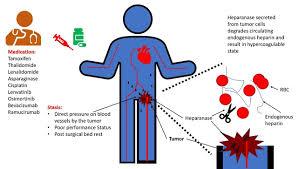What Are Symptoms of Hormonal Imbalance in Females?

Hormones are the body's chemical messengers, controlling everything from mood and metabolism to reproductive health. When these messengers get out of balance, the consequences can cascade through almost every function of a woman's life. Recognizing symptoms of hormonal imbalance in females is the key to getting back on track, since symptoms may develop gradually and be easily confused with other illnesses. By identifying the signs in the early stages, women are able to get the proper treatment and prevent long-term complications.
How Does Hormonal Imbalance Impact Daily Life in Women?
The reach of hormones goes well beyond reproductive processes. They regulate energy, sleep, weight, and even how the body reacts to stress. This is why hormonal imbalance symptoms in women tend to interfere with daily routines, and so women find themselves with fatigue, mood swings, or irregular cycles. When the endocrine system is not releasing hormones in the proper quantities, the imbalance can affect both physical and emotional wellbeing, making it harder to get through day-to-day life and decreasing overall well-being.
Why Do Symptoms of Hormonal Imbalance in Women Tend to be Overlooked?
Most women place changes in the body down to stress, aging, or lifestyle issues, unaware that these changes could be the result of hormone problems. Mild symptoms such as hair loss, a little nervousness, or untimely cycles may not appear serious initially. But ignoring the symptoms of hormonal imbalance in women tends to happen late, compromising diagnosis and treatment. Since the symptoms are a mimicry of other most prevalent health issues, women tend to neglect them until they become bothersome. Therefore, awareness is most important in identifying the early warning signs.
What Role Does Menopause Play in Hormonal Changes?
Menopause is among the most prevalent phases where women undergo considerable hormonal changes. Here, estrogen and progesterone levels naturally drop, inducing palpable physical and psychological changes. Hot flashes, night sweats, and mood swings are frequent symptoms of hormonal imbalances in females during this process. Although menopause is a natural process of life, without adequate management, its impact can become overpowering. Understanding the difference between normal menopausal changes and more serious imbalances helps women make informed decisions about their care.
Can Stress and Lifestyle Contribute to Hormonal Imbalance?
Modern lifestyles often put women under constant pressure, which directly affects the body’s hormone production. Stress increases cortisol, which in turn disrupts other hormones, creating a cycle that worsens over time. Poor diet, lack of sleep, and exposure to toxins can also intensify hormonal imbalance symptoms in females. Even seemingly small habits like inconsistent sleep schedules or excessive caffeine consumption can add up, creating long-term disruptions. Identifying and addressing lifestyle triggers is often the first step toward recovery.
How Do Hormonal Imbalance Symptoms in Females Affect Mental Health?
Mood swings, depression, and anxiety are frequently attributed to hormone changes such as estrogen, progesterone, and thyroid hormones. When these neurotransmitters change, they have a direct effect on brain chemistry, thus leaving women more susceptible to emotional instability. Identifying the signs of hormonal imbalance in women that impact mental health is critical since undiagnosed and untreated problems can cause strain in relationships, careers, and well-being in general. By linking mood swings to hormonal well-being, females can find solutions in their entirety instead of only resorting to temporary remedies.
Why Early Detection of Hormonal Imbalance Matters
The sooner hormonal problems are found, the less complicated they are to treat. If untreated, female symptoms of hormonal imbalance can develop into issues like infertility, osteoporosis, cardiovascular disease, or chronic fatigue. Early detection permits lifestyle modifications, natural therapies, or medication that can rebalance before issues progress. Women who tend to listen to their bodies and consult professionally when something doesn't feel right have the best opportunity to ensure long-term health.
How Do Women Effectively Deal with Hormonal Imbalance?
Dealing with the symptoms of hormonal imbalance in women involves a mixture of professional advice and individual lifestyle adjustments. Physicians might prescribe hormone tests, replacement treatments, or natural remedies based on the extent of the imbalance. In parallel, women can take measures proactively by having a balanced diet, following regular exercises, adopting stress management, and sleeping well. By combining medical care with everyday healthy routines, women are able to restore hormonal balance and take back control of overall health.
- Art
- Causes
- Crafts
- Dance
- Drinks
- Film
- Fitness
- Food
- Games
- Gardening
- Health
- Home
- Literature
- Music
- Networking
- Other
- Party
- Religion
- Shopping
- Sports
- Theater
- Wellness




